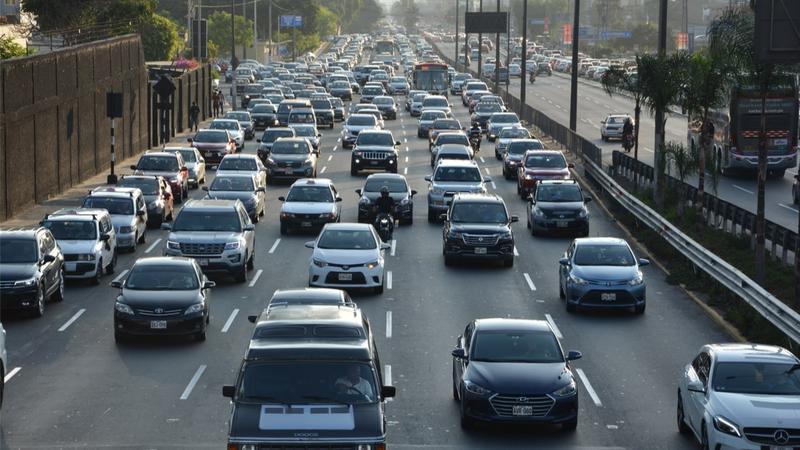After a long winter and a rainy spring in many areas of Canada, summer is finally here! We all enjoy the warmer weather and the prime vacation time that comes with the summer months.
While it is true that more insurance claims are filed during the winter months, the warmer weather of summer has its own dangers.
Here are the top 5 summer roadway issues that can affect your insurance premiums.
Top 5 Summer Issues1. Environmental challenges.
One of the biggest dangers that comes with summer weather conditions is that of thunderstorms. Thunderstorms can damage your car in several ways, for example, lightening strikes, hail and falling tree limbs. If you're out on the road, thunderstorms can also make driving conditions more difficult and contribute to collisions.
The best defense against this problem is to park your car in a closed garage. If that's not possible, try to park your car away from large trees when a thunderstorm is on the way.2. Potholes and other difficult road conditions.
One of the most common challenges that drivers can face in terms of road conditions are potholes. Potholes are caused by simple wear and tear of the asphalt over time. Hitting a pothole at a high speed can damage your car's suspension, as well as damaging the alignment and your tires.
Most auto insurance policies cover damage caused by potholes. However the damage they cause may be considered an “at fault” accident and cause increased insurance premiums.
The best thing you can do to avoid them is to drive within speed limits. This gives you a little more time to see potholes coming and lessens the impact damage when you do hit them. The same goes for other difficult road conditions such as gravel roads and construction zones.
As a side note, be particularly careful in construction zones since speeding or careless driving inside a construction zone can result in a substantially increased fine if you receive a traffic ticket for this offence. 3. Extra driving.
Most of us tend to drive more during the summer. Summer is the prime time for vacations, sight-seeing and cottage trips.
With the added kilometers, however, comes added risk. The simple fact is that, statistically, the more you drive, the greater your chance of being involved in a collision. Here are some things to keep in mind:
- Stay awake and alert on long trips. Take a break from driving at least once every two hours and consider stopping for the night if you begin to get very tired.
- Maintain visibility. When you're packing your car for long trips, make sure you don't block your windows or mirrors.
- Keep an emergency kit in your vehicle. Keep an emergency kit in your vehicle, including first aid equipment, basic tools for on the road maintenance and flares or orange reflective triangles in case you have to stop on the highway at night.4. Vehicle Maintenance.
The added driving also means a greater need for vehicle maintenance. It's a good idea to take your car in for a tune up and an oil change before you begin a long road trip. Here are some other things to check before you go:
- Tire pressure
- Engine coolant
- Transmission fluid5. Towing boats or trailers
One of the more unique challenges of summer is pulling a boat or trailer with you along the highway. Your car insurance covers the physical damage to your vehicle, but not collision or comprehensive coverage of the boat or trailer you're hauling with it.
As a result, you may be required to have separate insurance for whatever you're towing. This protects you financially from any damage to the trailer from an accident in which you are considered at fault.
Fortunately, car insurance policies do include third party liability coverage which covers the cost of any damage you may cause. If another driver were to damage your boat or trailer as a result of an accident for which they were considered at fault, that driver's third party liability insurance would cover the damage.
Preparation is the key to protecting yourself. Keeping these issues in mind can help you handle the driving challenges that come with summer and vacation travel, and ensure that you have a safe and happy summer.
